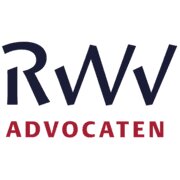Best Agriculture Lawyers in Leiden
Share your needs with us, get contacted by law firms.
Free. Takes 2 min.
List of the best lawyers in Leiden, Netherlands
About Agriculture Law in Leiden, Netherlands
Leiden, while known mainly for its vibrant academic and historical landscape, is also surrounded by a dynamic agricultural region. Agriculture in the Netherlands is highly advanced, with a focus on horticulture, arable farming, dairy, and innovative sustainable practices. Agricultural businesses near Leiden must operate under complex national, European Union, and local regulations. These regulations cover areas such as land use, environmental protection, animal welfare, product safety, and subsidies. Legal guidance is often necessary to navigate this intricate legal environment.
Why You May Need a Lawyer
There are several situations where people involved in agriculture in Leiden may require legal assistance:
- Acquisition, leasing, or selling of agricultural land or buildings
- Negotiating agricultural contracts, such as supply agreements or cooperative arrangements
- Compliance with environmental regulations, such as fertilizer use, biodiversity, and water management
- Dealing with disputes over land boundaries, usage rights, or zoning issues
- Resolving employment issues related to seasonal and permanent workers in agriculture
- Accessing and managing subsidies from the Dutch government or European Union
- Adapting to changing regulations related to sustainability and climate change
- Intellectual property issues, such as plant breeders’ rights and patenting new techniques
Legal professionals can help prevent costly mistakes, resolve conflicts, and ensure compliance with complex laws.
Local Laws Overview
Agriculture in Leiden is governed by a mix of national laws, European Union directives, and local municipal regulations. Key aspects to consider include:
- Zoning and Land Use: Municipalities set spatial planning rules dictating how land can be used for agriculture. There are strict controls protecting green areas and managing urban expansion.
- Environmental Protection: Laws regulate the use of fertilizers, pesticides, and water resources. Farms must comply with sustainability standards and biodiversity conservation initiatives.
- Animal Welfare: The Netherlands enforces strong animal welfare laws, covering housing, transport, and handling practices for all livestock.
- Subsidies and Grants: Local farmers can access financial support via the Gemeenschappelijk landbouwbeleid (Common Agricultural Policy) of the EU and national programs, but compliance requirements are stringent.
- Health and Safety: Both product safety for consumers and workplace safety for farm workers are regulated by Dutch and EU rules.
- Intellectual Property: Innovation in agriculture, such as new plant varieties or machinery, is protected by Dutch and EU intellectual property law.
Because Leiden is located in the province of South Holland, provincial laws and specific regional programs may also apply, especially concerning land development and environmental management.
Frequently Asked Questions
What kind of land can be used for agriculture near Leiden?
Zoning plans ("bestemmingsplannen") approved by the municipality determine which areas are designated for agricultural use. Many surrounding areas allow for horticulture, arable farming, and dairy, but always check the local zoning before purchasing or leasing land.
Are there restrictions on building agricultural structures?
Yes, construction of barns, greenhouses, or other facilities typically requires a permit from the local municipality. Plans must align with zoning laws, environmental protection policies, and sometimes heritage regulations.
How do environmental regulations affect farming in Leiden?
Environmental laws impact fertilizer usage, pesticide application, waste management, and water usage. Farmers must often submit regular reports and may face inspections to ensure compliance.
What subsidies are available for local farmers?
Farmers in Leiden can access EU subsidies through the Common Agricultural Policy and national schemes for sustainability, innovation, and young farmers. Deadlines, eligibility criteria, and reporting requirements are strictly enforced.
Can I resolve land disputes without going to court?
Many land disputes between neighbors or businesses can be resolved through negotiation or mediation. However, if these routes fail, legal proceedings may be necessary.
What worker rights must I be aware of as a farm owner?
Dutch labor law mandates fair contracts, safe working conditions, and appropriate accommodation for seasonal and permanent workers. Additional requirements apply to foreign labor.
Do local laws protect innovative agricultural ideas?
Yes, you can protect new plant varieties, unique techniques, and inventions under Dutch and EU intellectual property laws. Expert legal advice can help you secure patents or plant breeders’ rights.
How can I challenge zoning restrictions?
You may submit objections or appeals against zoning plans to the municipality during public consultation phases. Legal advice is essential for preparing a strong case.
What happens if I breach environmental regulations?
Breaching environmental laws can result in fines, remediation orders, loss of subsidies, or even criminal charges in severe cases. Legal counsel can help you respond appropriately and minimize penalties.
Where can I get official information or guidance?
The municipality of Leiden, agricultural chambers, and the Rijksdienst voor Ondernemend Nederland (RVO) are primary sources for official guidance and support.
Additional Resources
Below are resources and organizations relevant to agriculture in Leiden:
- Municipality of Leiden (Gemeente Leiden) - For zoning, permits, and spatial planning questions
- Province of South Holland - For regional agricultural programs and policies
- Rijksdienst voor Ondernemend Nederland (RVO) - For information on subsidies, licensing, and innovation
- Ministry of Agriculture, Nature and Food Quality (LNV) - For national policies, laws, and compliance matters
- Nederlandse Agrarisch Juristenvereniging (Dutch Association of Agricultural Lawyers) - For locating specialist legal professionals
- European Union Common Agricultural Policy (CAP) - For information on EU funding and regulation
- Local agricultural cooperatives and chambers of commerce - For business support and networking
Next Steps
If you believe you need legal assistance concerning agriculture in Leiden, consider the following steps:
- Identify and gather all documentation relevant to your issue, such as contracts, permits, land titles, or correspondence.
- Contact the municipality, RVO, or relevant provincial authorities to clarify specific regulations that apply to your situation.
- Search for a legal professional or firm with experience in Dutch agricultural law. Look for referrals through recognized associations.
- Schedule an initial consultation to discuss the complexities of your issue and determine possible solutions or strategies.
- Ensure your lawyer is up to date with both Dutch and European law, which can often overlap in agricultural matters.
Obtaining specialized legal advice can make a significant difference in achieving the best outcome, whether you are resolving a dispute, planning an investment, or complying with new regulations.
Lawzana helps you find the best lawyers and law firms in Leiden through a curated and pre-screened list of qualified legal professionals. Our platform offers rankings and detailed profiles of attorneys and law firms, allowing you to compare based on practice areas, including Agriculture, experience, and client feedback.
Each profile includes a description of the firm's areas of practice, client reviews, team members and partners, year of establishment, spoken languages, office locations, contact information, social media presence, and any published articles or resources. Most firms on our platform speak English and are experienced in both local and international legal matters.
Get a quote from top-rated law firms in Leiden, Netherlands — quickly, securely, and without unnecessary hassle.
Disclaimer:
The information provided on this page is for general informational purposes only and does not constitute legal advice. While we strive to ensure the accuracy and relevance of the content, legal information may change over time, and interpretations of the law can vary. You should always consult with a qualified legal professional for advice specific to your situation.
We disclaim all liability for actions taken or not taken based on the content of this page. If you believe any information is incorrect or outdated, please contact us, and we will review and update it where appropriate.











